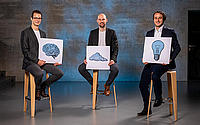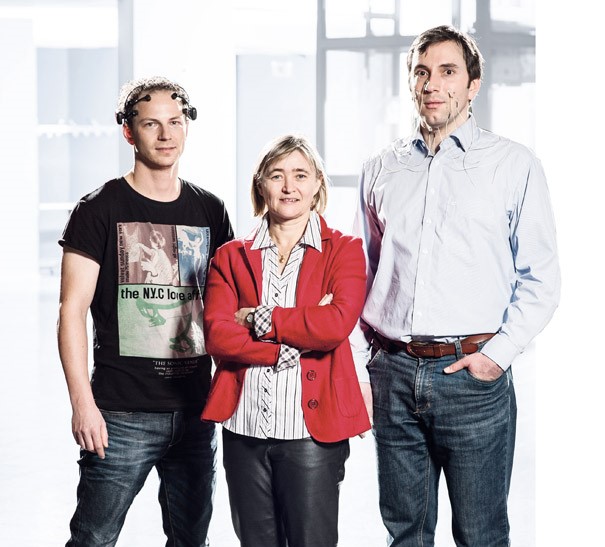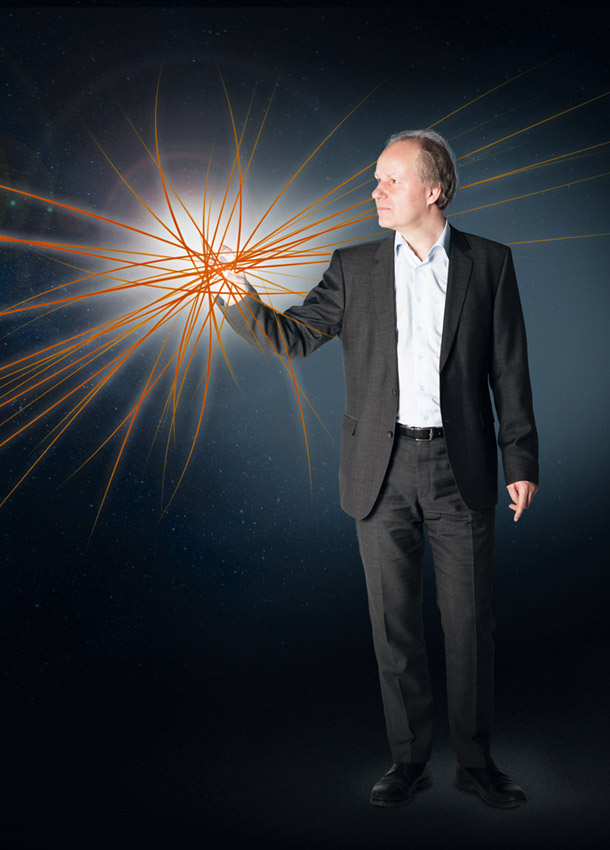- Information
- Climate, Environment & Health
FORGET-ME-NOT

"I forgot about that," "What was I going to do again?" - Words that cross everyone's lips from time to time.
In most cases, this can be assumed to be everyday scatterbrainedness. With advancing age, however, the sad reality of a serious disease may lie behind it: Dementia - the rapid death of brain cells due to pathological processes in the brain.
According to estimates by the German Alzheimer's Association, there are around 1.6 million people are living with dementia. The trend is rising, because demographic change is in full swing and human life expectancy is increasing. The course of dementia is complex; there are different forms with countless risk factors and symptoms. As diverse as the forms of the disease are, most of them have one thing in common: they cannot be cured. However, the latest scientific findings are positive. The course of dementia can be strongly influenced, especially in the early stages, by individual treatment of reversible risk factors, such as unhealthy sleep, smoking or lack of social contacts, thus reducing the development of dementia. Founders Marius Gerdes, Markus Schinle and Simon Stock of Metis Neurotec have made dementia treatment their mission and are using artificial intelligence (AI) to develop an approach that can significantly slow down and delay the progression of dementia using a digital treatment concept. Keeping the great forgetting small and life worth living: A glimmer of hope for those affected.
Dementia in the early stages
The first signs of dementia can be forgetfulness and confusion, personality changes or disorientation. "If any of these signs appear, one would have to intervene immediately and introduce modification measures, such as exercise in the individual's aerobic range or targeted dietary changes, in the daily life of the person with the disease. If you change the life of a diagnosed dementia patient early enough to counteract the risk factors, there is great hope of staying at this level and not slipping into severe dementia," says Stock. However, those affected themselves often ignore the first signs. Shame, fear of losing control and repression play a central role. The hard realization of no longer being able to live one's own life freely and flexibly as usual. It is only when there are clear signs that relatives often become suspicious and intervene. For them, too, the disease is a burden. Sooner or later, the increasing mental and physical impairment leads to the fact that patients are no longer able to lead an independent life and are dependent on time-consuming and cost-intensive help. The symptoms of dementia are painful - for everyone involved.
Fully comprehensive treatment concept for more efficient treatment
Despite our current medical standards, the treatment of dementia is limited. A frightening realization, given that it can affect any one of us. A fully comprehensive system that records and validates risk factors and treatment approaches does not currently exist. This is where Metis Neurotec's development comes in. "Our primary goal is optimal action planning after diagnosis from the doctor," says founder Schinle, describing Metis Neurotec's focus. "We are developing an AI-supported treatment concept. Our METIS app is accessible via smartphone and is complemented by wearable sensor technology such as fitness trackers and an EEG device." The doctor or physician and the sufferer use the system intensively together. Some values, such as vitamin B12 levels, can be determined with the help of a blood test. Other values, such as blood pressure or vigilance, are continuously recorded using the wearable sensor technology to determine risk factors for dementia. The values are collected in the app using artificial intelligence, evaluated and automatically transferred into treatment measures.
On the one hand, these can be non-medical measures such as exercise and concentration exercises, and on the other, medical measures such as blood pressure correction, which are summarized in a report for the medical consultation. "The basis of our approach is the AI rhythm. This can be thought of as a recommendation system: Patients suffering from factor A were helped by treatment B. Risk factor C was best prevented with the help of treatment D. The idea is to disseminate the experience and successful treatment approaches of medical professionals," says Schinle, explaining how the app works. Thanks to intensive collaboration with medical professionals, the team has a broad domain knowledge at its disposal. At the same time, new data sets are collected and existing ones are integrated.
With the help of continuous data recording using the app, AI-based evaluation and the recommendation function, the condition of the person being treated and the success of the treatment measures are regularly checked. This is an important difference to the current treatment, which consists of punctual measurements and values at the time of the visit to the doctor's office, depending on the form of the day, and is supplemented by medication.
From start-up project to 'App on prescription'
The team at Metis Neurotec is currently preparing the start-up, as the solution is attracting a wide range of interest from university clinics to health insurance companies and the German Alzheimer's Society. The app is currently being tested by pilot patients and further developed. In the medium to long term, the founding team would like to launch the 'app on prescription' as a medical product on the market and thus support neurologists, general practitioners and health insurers. In order to obtain approval as a medical product, the team is working intensively on the regulations of the digital health app. The next important steps towards approval are a clinical trial and certification in accordance with the requirements of the European Medical Device Regulation. Even though there are still some steps to go before official approval, the Metis Neurotec team is already convinced that the effort is worth it. "Our approach cannot cure dementia, but it can significantly extend the span for a healthy, independent life," says Gerdes.
Images: Markus Breig / KIT







